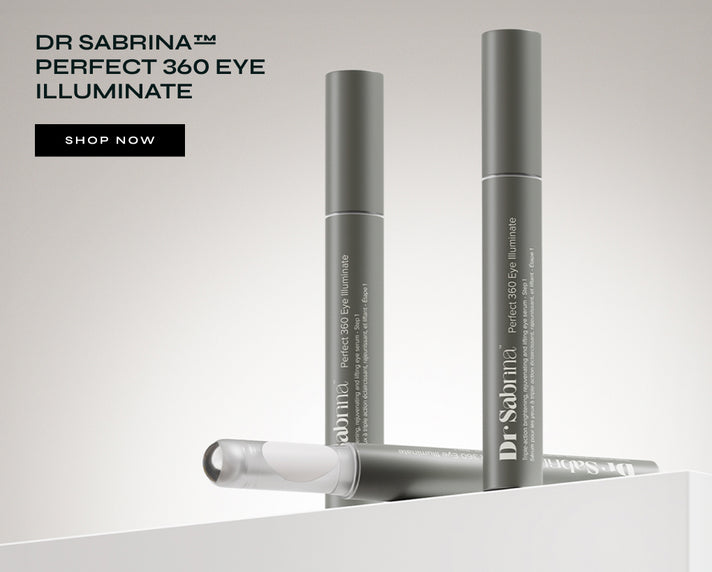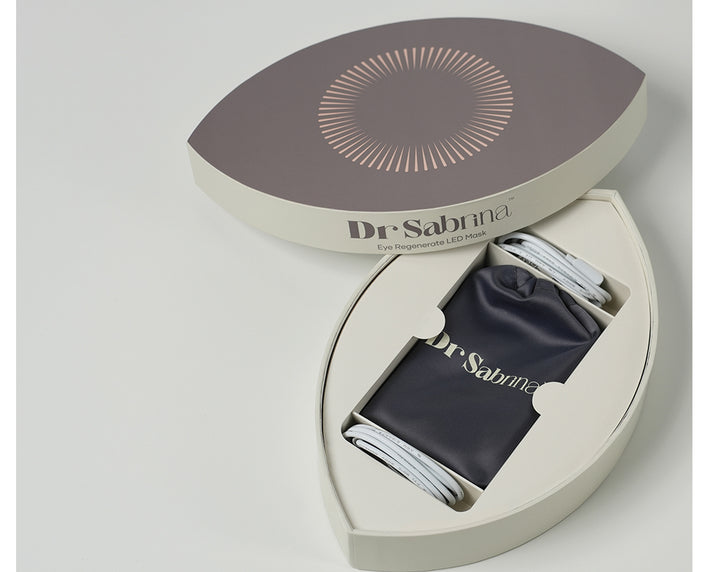Eye Serum
What is Retinol & How Does Retinol Work? A Beginner’s Guide
5 min.
Retinol is the gold standard of skincare, but for many, it’s also the most misunderstood. You’ve likely seen it on the label of your favourite serums and moisturisers, promising to erase wrinkles, clear acne, and bring back your glow. But what is retinol? And more importantly, how does retinol work?
If you're looking to demystify this powerhouse ingredient, you’ve come to the right place. In this beginner-friendly guide, we'll explore what retinol does, its skin benefits, common retinol side effects, and how to incorporate it into your skincare routine the right way.
What is Retinol?
Retinol is a derivative of vitamin A and a member of the retinoid family. While stronger forms like tretinoin require a prescription, retinol is available over the counter, making it a more accessible option for skincare beginners.
So, what does retinol do? Simply put, it helps stimulate skin cell turnover, unclog pores, reduce fine lines, and improve skin texture. That’s why it’s a hero ingredient in anti-ageing and acne-fighting products.
Looking for the Best retinol serums to get started? Always choose one that suits your skin type and tolerance level.
How Does Retinol Work?
Here’s a simplified breakdown of how retinol works at the skin level:
Penetrates the skin layers:
Retinol enters the topmost layer (epidermis) and works its way down to the dermis.
Converts to retinoic acid:
Once inside the dermis, it converts to retinoic acid, which is biologically active and binds to cell receptors.
Boosts collagen and elastin:
This triggers collagen and elastin production, improving skin elasticity and reducing wrinkles.
Accelerates cell turnover:
Retinol speeds up the shedding of dead skin cells and the generation of new ones.
Exfoliates and refines texture:
The accelerated regeneration has a mild exfoliating effect, improving texture and tone.
Fights free radicals:
It neutralises free radicals caused by the sun, stress, or pollution, preventing collagen breakdown.
Through these processes, what retinol does is essentially restore damaged skin and maintain a youthful, healthy appearance.
Benefits of Retinol: What Does Retinol Do?

Wondering about the real-life benefits of retinol? Here's what retinol can help with:
1. Fine Lines, Wrinkles, & Sagging Skin
By inducing collagen and elastin production, retinol repairs, firms, and plumps the skin, giving you a youthful look and reducing the prominent appearance of visible signs of ageing such as fine lines, wrinkles, and sagging skin.
2. Acne, Acne Scarring, & Uneven Texture
Speed-up skin cell turnover has a secondary exfoliating effect that removes dead skin cells that clog pores and cause acne breakouts. Removal of dead cells also results in even-textured skin.
Retinol can also regulate sebum (oil) production, thus reducing acne. While all cases of acne scarring cannot be solved with just retinol, its skin-repairing properties can help smooth out the scar tissue and make it less noticeable.
3. Hyperpigmentation, Dark Spots, & Dark Circles
Increased skin cell turnover removes the layer of dead skin cells that were hyperpigmented to reveal the even-toned skin underneath. In some cases, it can also suppress melanin production, thus preventing the formation of dark spots.
However retinol can potentially damage the skin, and other ingredients like vitamin C, niacinamide, and AHA (alphahydroxyacids) are preferred for use in the under-eye area. Before purchasing any Eye Serum online, it is important to check the concentration of active ingredients, including retinol or alternatives, in the product before using it on your delicate under-eye skin.
How to Use Retinol in Skincare as a Routine?
Incorporating retinol into your skincare routine doesn’t have to be intimidating. Follow these beginner-friendly steps to use it safely:
-
Start slow: Begin with a lower concentration (0.25–0.5%) and apply it 2–3 times a week at night.
-
Cleanse and dry skin: Always apply retinol on clean, dry skin to prevent irritation.
-
Pea-sized amount: A little goes a long way. Use just a pea-sized amount for the entire face.
-
Moisturise: Follow up with a moisturiser to reduce dryness and protect the skin barrier.
-
Sun protection: Retinol increases sun sensitivity, so SPF 30+ is non-negotiable during the day.
-
Avoid harsh actives: Don't mix with AHAs, BHAs, or vitamin C unless advised.
Wondering how often should you use retinol? Start with alternate nights and increase usage gradually, depending on your skin's tolerance.
Side Effects of Retinol
Now that you’ve learned what retinol is, how it works, and the benefits of retinol, let’s explore the potential drawbacks or negative side effects of using retinol-based products.
Side effects of retinol include:
1. Dry Skin
By accelerating the skin cell turnover rate, retinol causes dead skin cells to shed faster. This weakens the natural skin barrier in the short term and causes the skin to lose moisture quicker than normal, leading to dryness.
Inflammation or Redness
Retinol is a strong ingredient that can cause irritation, which manifests as inflammation or redness of the skin.
2. Itchiness
The aforementioned effects of retinol that irritate the skin, including dryness and inflammation, can cause itching. While it can be frustrating, these effects are typically temporary and should go away in the long term.
3. Increased Sensitivity to Sun Exposure
Retinol weakens the natural skin barrier in the short term, which makes the skin more susceptible to sun damage. It can also temporarily suppress melanin production. Melanin protects the skin from harmful sun rays, and temporary suppression of its production can lead to increased sun sensitivity.
Choosing the right product with a suitable retinol concentration and incorporating it slowly into your skincare routine can help minimise these side effects. An expert, such as a dermatologist, can help you choose the best retinol-based product for you if you are worried about how your skin might react.
Retinol in Periorbital Skincare
The skin around the eyes is delicate, and while retinol can help with fine lines and dark circles, caution is essential. Use eye creams with lower retinol concentrations, and always apply moisturiser and SPF to protect this sensitive area.
Want to know the difference between retinol and retinal? Retinal is stronger and works faster, but is also more irritating; choose based on your skin’s needs.
If you have very sensitive skin or experience persistent irritation, retinol is usually a no-no. You should consult a specialist to find an alternative solution that is best suited for you. There are several other methods you can consider if you have sensitive skin and are wondering how to get rid of dark circles, fine lines, or wrinkles.
Quick Recap: What is Retinol & How Does Retinol Work?
Retinol, a member of the family of retinoids, is a form of vitamin A known for its reparative effects on the skin. It is a powerful anti-ageing skin ingredient that restores the youthful glow and firmness of the skin by increasing skin cell turnover, boosting collagen and elastin production, shedding dead skin cells, and neutralising free radicals in the skin.
Retinol can be used to treat several skin conditions, including fine lines, wrinkles, sagging skin, acne, acne scarring, hyperpigmentation, dark spots, and even dark circles. Before starting to use a retinol-based product, ensure that you are educated about its potential side effects, especially if you already have sensitive skin.
FAQs
1. What is retinol best used for?
Anti-ageing, acne control, and improving skin texture.
2. How does retinol work on acne?
By unclogging pores and speeding up cell turnover, which reduces breakouts.
3. Can I use retinol every day?
Start with 2–3 times a week. Gradually build up to daily use based on your skin's tolerance.
4. What are the side effects of retinol?
Dryness, redness, irritation, sun sensitivity, and peeling in some cases.
5. When should I stop using retinol?
If irritation becomes severe or persistent, discontinue and consult a skincare professional.
















